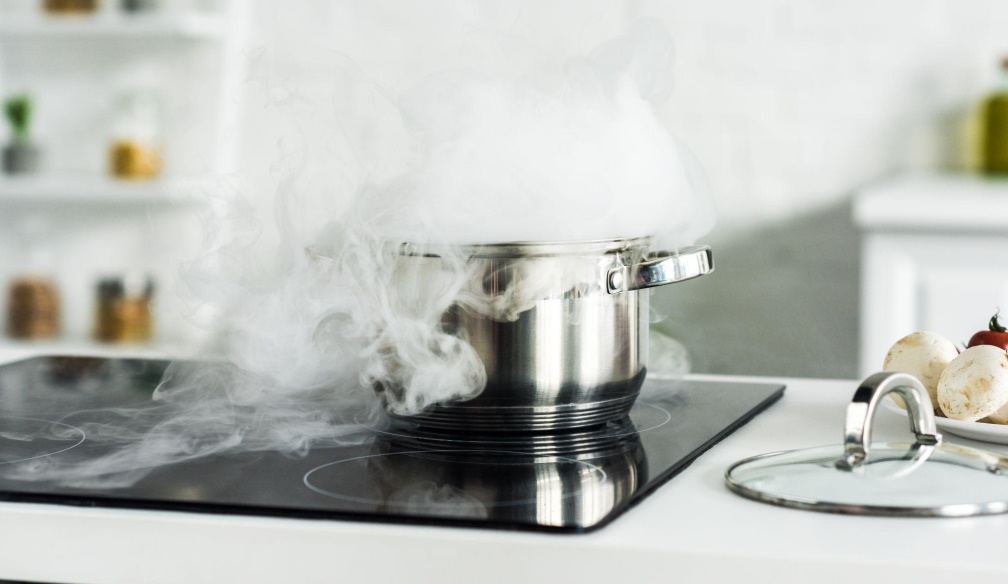What Stove is Right For Me? Gas Vs Electric

So, you're looking for a new stove but can't decide between electric and gas. Both types have their benefits and drawbacks. Let's look at the pros and cons of each type. Hopefully, this will help you make an informed decision when it comes to choosing your next range!
Electric Cooktops
Pros
Cheaper to purchase
Electric cooktops are cheaper to purchase than gas ones because they use less fuel and don't require natural gas or propane lines to run.
Easy to clean
Gas stoves have open flames, which means that the surface is susceptible to grease splatters. Electric cooktops, on the other hand, do not have flames and can be easier to clean than gas stoves.
Cons
Remains hot long after cooking
Electric cooktops remain hot long after you've turned off the burner, while gas burners are only hot when they're on. This means that if you turn off the burner and leave your food cooking on high heat, it could burn before it's done, or worse, catch fire.
Slower control
Electric cooktops have slower control compared to gas stoves. A gas stove gives you better control over the heat of your stovetop by allowing you to adjust the flame size, which means you can turn it up or down as needed. Electric cooktops don't have this kind of flexibility; they heat up gradually at a set temperature that's pre-set by the manufacturer.
Uneven cooking
Electric cooktops provide uneven cooking, which can result in burnt food on one side of the pan and undercooked food on the other side. This is due to their heating elements being located at the back of the burner. This makes it difficult for a pan to distribute heat evenly over its entire surface area while being heated by an electric burner.
Spills & stains can be baked on
Gas stoves are easier to clean up after cooking because spills and stains will burn off rather than bake onto the surface of an electric cooktop.
Energy efficiency
A gas stove uses less energy than an electric stove because it has a higher heat capacity. This means that it takes more heat to raise the temperature of a gas burner by one degree Celsius than it does for an electric burner. The higher heat capacity means that you need less energy to get the same amount of heat out of the burner.
Gas Cooktops
Pros
Easy to control
Gas stoves can be turned up or down as necessary, giving you more control over how much heat is emitted in your kitchen. Electric stoves usually have only two settings, low and high, which makes it difficult to control how much heat is being released into your kitchen at any given time.
No loss of power
If you live in an area where power outages are common, or even if you just want to be prepared for one, electric stoves aren't the way to go. Gas stoves are reliable, easy to use and safe. They're also great for cooking in an RV or camper because they can run on propane tanks that don't need electricity.
High efficiency
Another reason why gas stoves are better than electric stoves is that they save money. In addition to being more efficient and getting hotter faster, gas stoves also cost less to operate than electric ones.
Cools quickly
Gas stoves cool off much quicker than electric stoves, so flipping is much easier on them and more convenient for home cooks who want their food cooked evenly and quickly.
Cons
Expensive purchase cost
Gas stoves cost more money upfront, but if you buy a high-end model, then it will last for decades and won't require any maintenance beyond an occasional cleaning.
Difficult to clean
Gas stoves require regular cleaning and maintenance. The burners need to be cleaned after every use, and the rest of the stove needs a thorough cleaning once a week or so. Electric stoves require less maintenance, but you'll still need to wipe down the surface occasionally.
Fire risk
Gas stoves are a fire hazard because they use open flames that get very hot and can easily ignite nearby flammable items, such as curtains or clothing. They allow spilled fuel to pool on the stovetop and catch fire later when you're cooking or cleaning up after dinner.
Conclusion
We hope that, through this article, we've put to rest the need for a debate. As it turns out, there are pros and cons to both gas stoves and electric stoves, so the choice ultimately comes down to a matter of personal taste and preference. In the end, one is not necessarily better than the other; it's simply a question of which is more appealing to each individual person. Just remember, if you do go with gas, then be sure that you call a licensed gas fitter to safely install your gas stove.










